“eFarms” Project – Establishing Sustainable Rural Production Communities through Innovative and Inte
Description
The project target groups are the rural poor, particularly women, rural youth & elderly, involved in traditional village based agriculture products such as Kitul, Rice, Jak, Fruits & Vegetables. The project is funded by the ICT Agency of Sri Lanka. Project partners include TEAMS (lead partner), Industrial Technology Institute (ITI), Ministry of Technology & Research (MOTR) and Megaskills Research (solution provider). The project has developed and implemented several technologies to address constraints faced by target groups including: • SMS alerts providing market prices and order information. • Multi-lingual eLearning resources and reference materials for enterprise set-up, value addition, packaging & income generation, • direct access to technology transfer agencies (like ITI) via video conferencing for troubleshooting on subject matter issues, • linking rural producers with direct markets (companies & exporters) through databases & mobile Vidhata Resource Centres (VRCs) of the MOTR provide supporting infrastructure to rural farmers and entrepreneurs including: • IT/internet facilities and access to the eFarms elearning resources, • trained staff who use the eFarms applications to provide relevant training, information, services and facilitation to the target groups including subscription to mobile services • various processing equipment (e.g. ovens, dehydrating machines, packing machines etc). The project is being piloted at 8 VRCs in Sri Lanka.
What we deliver
For rural producers/entrepreneurs the project delivers: • SMS content on specific product orders and market prices • Sinhala/Tamil eLearning content providing know-how/technology transfer for key value added products such as Rice Bread, Yoghurt, Rice snacks & cereals, Dehydration of fruits & vegetables, Ready to Serve Drinks, Fruit Cordials and Kithul products • Sinhala/Tamil Reference material content enabling additional transfer of know-how on products, business operation, supplier information and best practices • Content on buying companies (e.g. wholesalers, supermarkets, exporters etc) • Video conference based technical support and troubleshooting services at scheduled dates/times via experts from technology transfer agencies such as ITI For extension support workers : • eLearning and reference material content for numerous value added products based on rural agriculture produce • web based database applications to enable linking of rural producers/entrepreneurs with buyer companies • Additional tools such as SMS alerts and video conferencing to better support rural producers/entrepreneurs For purchasing companies • SMS platform to enable rapid requests for specific product orders • Content on rural products from rural producers/entrepreneurs including details such as product types, location, volumes, specifications etc.
Whom we deliver
Rural farmers/entrepreneurs involved in agriculture produce (primary and value added) Operators of community technology centres (including networking of 260+ VRCs and network of 300+ Nenasalas) Government technology agencies such as ITI and Ministry of Technology & Research Industry including retailers, supermarkets, exporters & technology providers
Why is the project unique?
The project is unique in terms of empowering poor rural agriculture communities to improve their technical capabilities, undertake informed decision making/planning & improve their income levels. More specifically the eFarms project is innovative in terms of: • Linking rural producers/entrepreneurs to markets and technology transfer agencies such as ITI through the integrated use of ICTs such as web information, databases, SMS applications and video conferencing • Improving the know-how and skills of rural producers/entrepreneurs for farm decision making, value addition, income generation and entrepreneurship through ICTs such as eLearning content, reference materials and other supporting tools • Improving the timeliness and relevance of services provided by technology transfer agencies (e.g. ITI) and extension support agencies (e.g. VRCs) through ICTs • A sustainable operation model involving technology transfer agencies (ITI), VRCs who provide community level facilitation/infrastructure, companies and the producers/entrepreneurs.
Roadmap
Vision: “A future where highly relevant digital content is available for and accessible by every single global citizen enabling a true information society through widest possible means”. Key positive impacts of mobile technology for development, include: • Greater empowerment of disadvantaged groups through bridging of information gaps, skills transfer and awareness and access to global markets • New models of operation brought about by efficiency and enabling factors of technology • Participation by disadvantaged groups in the information society and bridging of the digital gap and urban/rural divide • Transparency and accountability in development initiative.
Contact
Dr. Channa Gunawardena / Mrs. Kamani Amarasekera
TEAMS (Pvt) Limited, 35 Hospital Road
Maharagama
Colombo District, Sri Lanka
URL/Website – www.efarms.lk




